- Home
- Franklin W. Dixon
The Secret of the Old Mill Page 2
The Secret of the Old Mill Read online
Page 2
The man looked at Oscar Smuff as though he were crazy. So did the cashier. Other people quickly crowded around.
“What’s the matter?” someone called out.
The Hardys and Chet hurried forward, as the man pulled his arm away from Smuff’s grasp and demanded angrily, “What’s the meaning of this?”
“You know very well what’s the meaning of this,” Smuff blustered, and grabbed the man’s arm again. “Now, miss”—Smuff turned to the cashier—“let me see the bill this man just gave you.”
The woman was too surprised to refuse the request and handed the bill to the amateur detective.
Smuff took the money. The Hardys stepped up and peered over his shoulder. The bill was a five-dollar one. Suddenly the expression on Smuff’s face changed to confusion and concern.
“Oh—er—a five—” he stuttered.
He dropped his hold on the man’s arm and stared down at the floor. “Awfully sorry,” he muttered. “It’s been—a—mistake.”
Both the man and the cashier looked completely bewildered. The next moment Smuff whirled and dashed from the store.
The Hardys and Chet rushed after him. They were overwhelmed with curiosity as to what Smuff thought the man had done. The boys soon overtook the would-be detective.
“What’s up?” Joe demanded. “Looking for somebody suspicious?”
Oscar Smuff reddened when he realized the boys had witnessed his entire performance.
“Never mind,” he said sharply. “I’ll bet even you smart-aleck Hardys have made mistakes. Anyhow, this is different. I’m helping the police on a very special, very confidential case.”
As he made the last statement, Smuff shrugged off his look of embarrassment and assumed an air of great importance.
“Well, I can’t waste precious time gabbing with you three.” Smuff turned and rushed off down the street.
The boys watched his bustling figure as he disappeared into the crowd. “I wonder what kind of case ’Detective’ Smuff is working on?” Frank mused.
“I do too,” Joe said, as Chet finally led the way into the Scientific Specialties Store.
Mr. Reed, the shop owner, stood behind the counter. He was a plump, pleasant man with a shock of white hair that stood erect on his head.
“Have you come for your microscope, Chet?” he asked. As he spoke, the man’s head bobbed up and down and his white hair waved back and forth as though blown by the wind.
“Yes, sir, Mr. Reed,” Chet said enthusiastically. “My friends, Frank and Joe, are looking forward to trying out the microscope just as much as I am.”
Joe smiled a little skeptically, but Frank agreed with his chum. Chet pulled out his wallet and emptied it of ten- and twenty-dollar bills. “Here you are, Mr. Reed. I’ve been saving for a long time so I could get the best.”
“And the best this is.” Mr. Reed smiled. “I’ll get the microscope you want from the stock-room.” The proprietor picked up the money and disappeared into the back of the store.
While they waited, Chet pointed out the various instruments on display in the showcase. The Hardys were surprised at how much Chet had learned about microscopes and their use.
After waiting five minutes, Chet grew impatient, “Wonder what’s keeping Mr. Reed,” he said. “I hope he has my ’scope in stock.”
At that moment Mr. Reed returned. There was a look of concern on his face.
“Don’t tell me you haven’t got the model.” Chet groaned.
Mr. Reed shook his head. When he spoke, his voice was solemn.
“It’s not that, Chet,” he said. “I’m afraid that one of the twenty-dollar bills you gave me is a counterfeit!”
CHAPTER III
An Unexpected Return
“COUNTERFEIT!” Chet burst out. “Counterfeit! It can’t be. I just drew the money out of the bank this morning.”
The Hardys, nonplused, stared at the twenty-dollar bill Mr. Reed was holding.
“I’m sorry, Chet,” Mr. Reed said sympathetically. “But just a few days ago all the store-keepers in town were notified by the police to be on the lookout for fake twenties. Otherwise, I wouldn’t have checked it. I can’t understand, though, why the bank didn’t detect it.”
Frank’s mind raced. “Wait a minute!” he exclaimed. “Chet, what about the man you made change for at the station?”
“You’re right, Frank!” Joe put in. “He must have passed Chet the phony twenty!”
“You mean he gave it to me on purpose?” Chet asked indignantly.
“It’s possible,” Frank said. “Of course it would be pretty hard to prove whether he did it intentionally or not.”
“What did the man look like?” Joe questioned Chet. “We got only a glimpse of him running for the train. He was medium height and stocky, but did you notice anything else about him?”
Chet thought for a few seconds. Then he said, “I do remember that the man had a sharp nose. But he was wearing sunglasses and a slouch hat, so I didn’t notice much else.”
The Hardys tried to fix a picture of the man in their minds. Meanwhile, Chet looked gloomily at the bogus bill.
“What luck!” he complained. “Here I am cheated out of twenty dollars and the microscope.”
“I’m sorry, Chet,” Mr. Reed said. “I wish there was something I could do about it.”
“Don’t worry, Chet,” said Joe. “You’ll get the microscope, anyway.” He turned to his brother. “How much money do you have with you?” he asked. “I have five-fifty.”
Frank emptied his pockets, but all he had was three dollars in change and bills.
“We’ll lend you what we have,” Joe offered. “Eight-fifty.”
Although Chet protested, the Hardys insisted, and Mr. Reed added, “You can take the microscope along and pay me the balance when you can.”
Frank and Joe put their money on the counter, while Mr. Reed went to wrap the instrument.
“Thanks. You’re real pals,” Chet said gratefully.
When the store owner returned with the package, Chet said, “I’ll go right down to Dad’s office and borrow the balance. We’ll get back here later this afternoon. Thanks very much, Mr. Reed.”
The boys were about to leave when Frank had a sudden thought.
“Mr. Reed,” he said, “would you let us borrow that counterfeit bill for some close study? We’ll be sure to turn it over to Chief Collig.”
“Swell idea,” Joe said.
The proprietor, who was familiar with the Hardys’ reputation as sleuths, readily assented. Frank put the bill in his pocket and the boys left the store.
They hurried back to Chet’s car and drove to Mr. Morton’s real-estate office several blocks away. The office was on the street level of a small building. They entered and were greeted pleasantly by Mr. Morton’s efficient secretary, Miss Benson.
“Hello, boys. Enjoying your summer vacation?”
“Yes, thanks, Miss Benson,” Chet said, eying his father’s empty desk. “When will Dad be back?”
“Your father’s gone for the day, Chet,” she replied. “He decided to go home early.”
“That’s funny,” Chet mused. “Dad usually stays until five at least.”
“We have time to drive out to the farm before we meet the train,” Joe said. “Let’s go.”
The Morton farm was on the outskirts of Bayport. When Chet swung the car into the driveway, Joe noticed with pleasure that Iola, Chet’s sister, was waving to them from the front porch. Dark-haired Iola, slim and vivacious, was Joe’s favorite date.
When they told her about the counterfeit bill, she exclaimed, “What a shame!”
Joe agreed emphatically. “And we’d sure like to get a lead on the man who passed it to Chet.”
“Sounds as if you Hardys are in the mood for some sleuthing,” Iola said with a twinkle in her eye.
“What’s this about sleuthing?” asked attractive Mrs. Morton as she came outside and joined the group.
The boys quickly explained. T
hen Chet asked his mother, “Is Dad around?”
Mrs. Morton smiled. “He isn’t here right now, Chet. He’s attending to an important job.”
Chet looked disappointed until his sister giggled and said, “Dad’s not too far away.” Iola winked at her mother and they both began to laugh.
“Your father’s important job is at his favorite fishing spot,” Mrs. Morton told Chet.
“Fishing!” Chet exclaimed. “He never goes fishing during the week!”
“He did this time,” said Mrs. Morton. “I guess the good weather was too much for him to resist.”
A few minutes later the boys were in the jalopy and driving down a country road bordered by woods. A half mile farther, Chet stopped and turned off the Queen’s engine. The sound of rushing water could be heard.
“This is the spot,” Chet announced, and they started off through the woods.
The boys soon came to a clear running stream and spotted Mr. Morton seated contentedly on the bank. He was leaning against a tree, holding his rod lightly between his knees and steadying it with his hands.
Just as the boys called a greeting to him, the line began to jerk and almost immediately the rod bent till the tip was close to the water. Mr. Morton leaped to his feet and shouted, “Just a minute, fellows! I’ve hooked a lulu!”
Mr. Morton was an expert. He let the fish take just enough line to bury the hook properly, then he very gently braked the reel with his thumb.
So intent was Mr. Morton on his fishing, he was not aware that his son was now rushing down the slope toward him. Suddenly Chet slipped on a moss-covered rock and fell forward. He lost his grip on the box containing the microscope and it flew toward the water. Joe, behind Chet, leaped forward and grabbed the box.
“Whew!” Chet exclaimed, regaining his balance. “Good work, Joe! Thanks a million!”
The three boys joined Mr. Morton, who was busy landing his catch, a fine, smallmouthed black bass. He held up the fish for them to admire. “Isn’t it a beauty, boys?” he said.
“Terrific, Dad,” Chet replied, still out of breath from his near tumble. “And I have something to show you.”
He unwrapped the package and held out the microscope. Mr. Morton put the fish in his creel, then studied the instrument closely.
“It’s a topnotch one, son,” he declared. “And just the model you wanted.”
“Yes, Dad. Only there’s a slight problem connected with it.”
“Oh—oh.” Mr. Morton chuckled good-naturedly. “I should have known from the look on your face. You didn’t have enough money, after all. Well, how much do you need?”
“That isn’t all there is to it,” Chet hastened to inform him, and told about the counterfeit bill.
Mr. Morton’s face darkened. “I hope we’re not in for a flood of phony bills.”
Frank nodded. “Especially since these are very clever imitations.”
Chet’s father handed over twenty dollars in small bills.
“Thanks, Dad.”
“From now on, Chet, be careful about making change for strangers,” Mr. Morton cautioned.
“I will,” his son promised fervently. “Getting cheated once is enough!”
Chet paid the Hardys the money they had lent him. Then he said to his father, “I sure was surprised when Mother told me you were fishing —in the middle of the week.”
Mr. Morton smiled broadly. “I’ve been working hard the past year on the big sale of land to Elekton Controls,” he said. “I thought it was time to take an afternoon off and do some thinking while the fish were nibbling.”
“Is that the property in back of the plant they just finished building?” asked Frank.
“That’s right.” Mr. Morton pointed upstream. “You can just see the top of the main building from here.”
“The property you sold has the old Turner mill on it,” Joe remarked. “Quite a contrast. A company that makes top-secret control parts for space missiles in a modern building right next to an ancient, abandoned gristmill.”
“I suppose they’ll tear the old place down,” Frank remarked.
“No, Elekton has decided to use it,” Mr. Morton went on. “I suggested to them that the old mill would make an attractive gatehouse for the plant’s rear entrance. After all, it’s a historic place, built by the settlers when this whole area was inhabited by Indians. The company has renovated the old mill a bit, restoring the old living quarters and adding modern facilities.”
“Is someone living there?” Joe asked with interest.
“I understand a couple of their employees are,” Mr. Morton replied. Then he continued, “They’ve even repaired the wheel, so it’s turning again. Hearing the rushing water and the grinding of the wheel’s gear mechanism brought back memories to me.”
“About the Indians, Dad?” Chet joked.
“Not quite, son.” His father smiled. “But I can remember when the mill produced the best flour around here. Your grandmother made many a delicious loaf of bread from wheat ground in the Turner mill.”
“That’s for me!” Chet said.
Everyone laughed as Mr. Morton reminisced further about having seen the mill in full operation when he was a boy. Suddenly he and the Hardys noticed that Chet had fallen silent. There was a familiar, faraway look in his eyes.
Joe grinned. “Chet, you’re turning some new idea over in your mind.”
“That’s right,” Chet said excitedly. “I’ve been thinking that maybe I could get a summer job at Elekton.”
Mr. Morton exchanged amazed glances with the Hardys at the thought of Chet’s working during the summer vacation! But, with growing enthusiasm, Chet went on:
“I could earn the twenty dollars I owe you, Dad. Besides, if I am going to be a scientist, I couldn’t think of a better place to work.”
“Elekton’s a fine company,” his father said. “I wish you luck, son.”
“Thanks, Dad.” Chet smiled broadly. “See you later. I have to go now and pay Mr. Reed the money I owe him.”
On the drive back to town, Chet told Frank and Joe that he was going to apply for a job at the Elekton plant the next day.
“We’ll go along,” Joe offered. “I’d like to see the plant and the old mill.”
“Swell,” said Chet.
When they reached the shopping area in Bayport, Chet drove directly to Mr. Reed’s store. The three boys had just alighted from the parked car when Chet excitedly grabbed his friends’ arms.
“There he is!” the chubby boy exclaimed. “Right down the street—the man who gave me that phony twenty!”
CHAPTER IV
The Shadowy Visitor
“THERE he goes! Across the street!” Joe said excitedly. “Let’s ask him about the counterfeit bill!”
The three boys broke into a run, dodging in and out of the crowd of afternoon shoppers. The Hardys kept their eyes trained on the stocky figure of their quarry.
But their chase was halted at the corner by a red traffic light against them. The street was congested with vehicles and it was impossible for the boys to get across.
“What luck!” Joe growled impatiently.
It seemed to be the longest red light they had ever encountered. When it changed, the three-some streaked across the street—but it was too late. The stocky man was lost to sight. The Hardys raced down the next two blocks, peering in every direction, but to no avail.
Disappointed, Frank and Joe went back to Chet, who had stopped to catch his breath.
“We lost him,” Joe reported tersely.
Frank’s eyes narrowed. “I have a hunch that man who passed the bogus twenty-dollar bill to Chet knew it was counterfeit. That last-second dash for the train was just a gimmick to make a fast getaway. But his showing up here in Bayport a couple hours after he took the train out of town is mighty peculiar.”
Joe and Chet agreed. “He probably got off in Bridgeport,” Frank went on. “That’s the nearest big town.”
As the boys walked back toward the Scientifi
c Specialties Store, they speculated about the source of the supply of bogus money.
“Maybe it’s Bridgeport,” Frank said. “That could be one of the reasons he took the train there—to get a new supply, or palm off more.”
“You mean they might actually make the stuff there?” Chet asked.
Frank shrugged. “Could be,” he said. “I hope no more counterfeit bills are passed in Bayport.”
“There probably will be,” Chet said ruefully, “if this town is full of easy marks like me.”
“Let’s keep a sharp lookout for that fake-money passer from now on,” Joe said, “and other clues to the counterfeit ring.”
“Who knows,” Chet put in, “it could turn out to be your next case.”
As soon as Mr. Reed had been paid, the boys drove to Bayport Police Headquarters. Chet decided to take his microscope into headquarters and show it to Chief Ezra Collig. The keen-eyed, robust officer was an old friend of Fenton Hardy and his sons. Many times the four had cooperated on cases.
“Sit down,” the chief said cordially. “I can see that you boys have something special on your minds. Another mystery?”
He leaned forward expectantly in his chair.
“It’s possible, Chief,” replied Frank as he handed over the counterfeit bill. Quickly the Hardys explained what had happened, then voiced their suspicions of the man who had just eluded them.
“Have there been any other reports of people receiving fake bills?” Joe asked the officer.
Chief Collig nodded. “Chet’s not the first to be fooled,” he replied. “Since the Secret Service alerted us to watch for these twenty-dollar bills, we’ve had nearly a dozen complaints. But we’ve instructed the people involved not to talk about it.”
“Why?” Chet asked curiously.
“It’s part of our strategy. We hope to trap at least some of the gang by lulling them into a feeling of false security.”
The boys learned that Chet’s description of the stocky stranger tallied with what the police had on file.
“He’s a slippery one,” the chief added. “It sounds to me as if the man wears a different outfit each time he shoves a bill.”

 The Great Pumpkin Smash
The Great Pumpkin Smash Who Let the Frogs Out?
Who Let the Frogs Out? Return to Black Bear Mountain
Return to Black Bear Mountain A Treacherous Tide
A Treacherous Tide Bug-Napped
Bug-Napped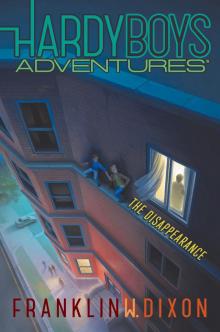 The Disappearance
The Disappearance Sea Life Secrets
Sea Life Secrets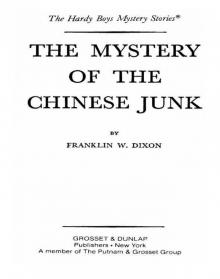 The Mystery of the Chinese Junk
The Mystery of the Chinese Junk A Skateboard Cat-astrophe
A Skateboard Cat-astrophe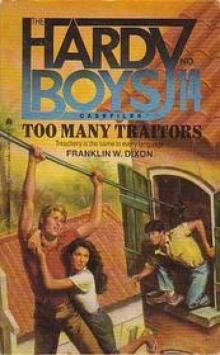 Too Many Traitors
Too Many Traitors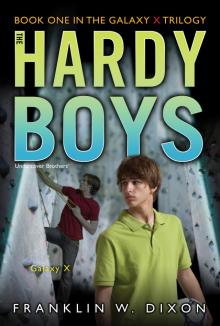 Galaxy X
Galaxy X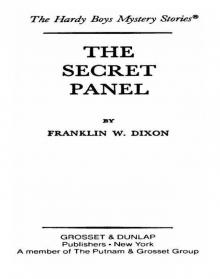 The Secret Panel
The Secret Panel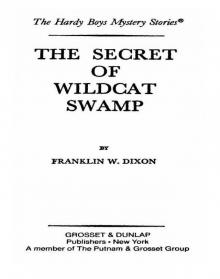 The Secret of Wildcat Swamp
The Secret of Wildcat Swamp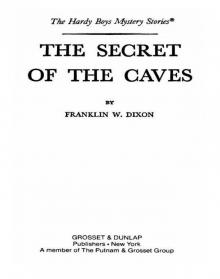 The Secret of the Caves
The Secret of the Caves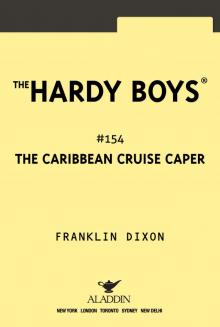 The Caribbean Cruise Caper
The Caribbean Cruise Caper Without a Trace
Without a Trace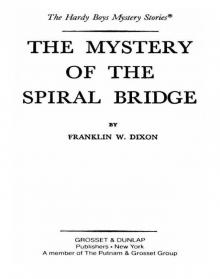 The Mystery of the Spiral Bridge
The Mystery of the Spiral Bridge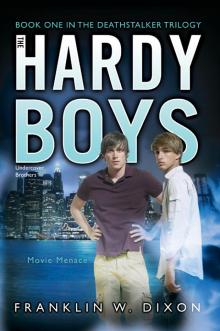 Movie Menace
Movie Menace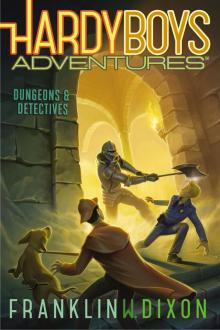 Dungeons & Detectives
Dungeons & Detectives Water-Ski Wipeout
Water-Ski Wipeout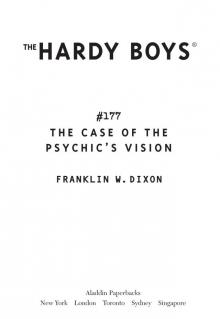 The Case of the Psychic's Vision
The Case of the Psychic's Vision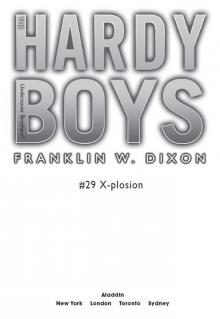 X-plosion
X-plosion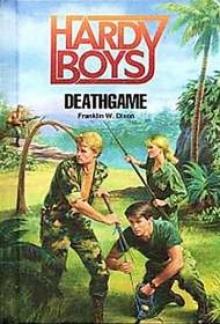 Deathgame
Deathgame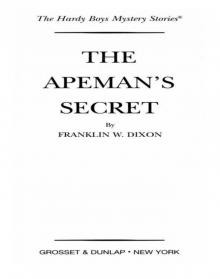 The Apeman's Secret
The Apeman's Secret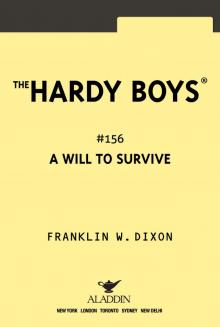 A Will to Survive
A Will to Survive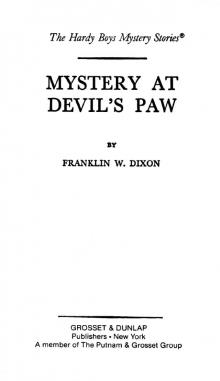 Mystery at Devil's Paw
Mystery at Devil's Paw Blood Money
Blood Money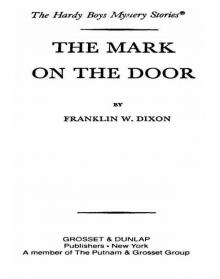 The Mark on the Door
The Mark on the Door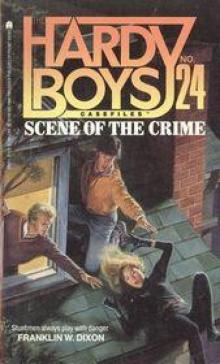 Scene of the Crime
Scene of the Crime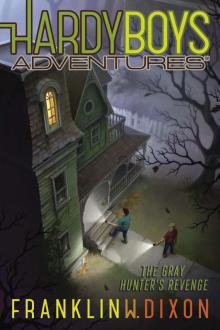 The Gray Hunter's Revenge
The Gray Hunter's Revenge Stolen Identity
Stolen Identity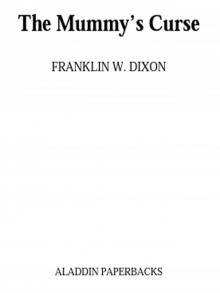 The Mummy's Curse
The Mummy's Curse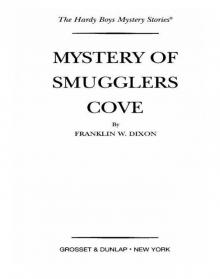 Mystery of Smugglers Cove
Mystery of Smugglers Cove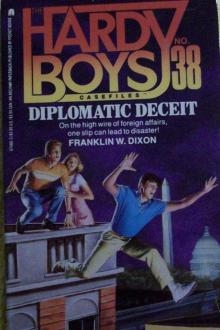 Diplomatic Deceit
Diplomatic Deceit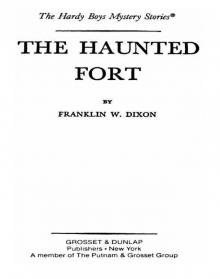 The Haunted Fort
The Haunted Fort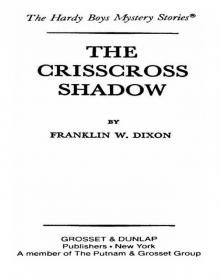 The Crisscross Shadow
The Crisscross Shadow Secret of the Red Arrow
Secret of the Red Arrow Trial and Terror
Trial and Terror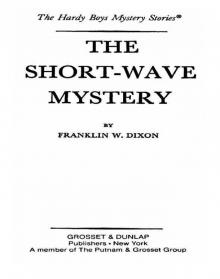 The Short-Wave Mystery
The Short-Wave Mystery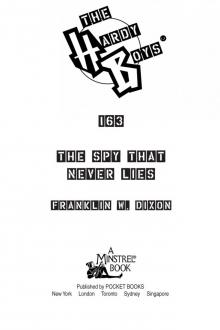 The Spy That Never Lies
The Spy That Never Lies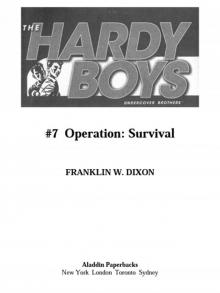 Operation: Survival
Operation: Survival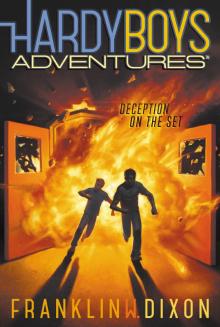 Deception on the Set
Deception on the Set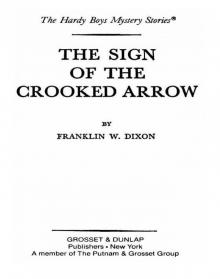 The Sign of the Crooked Arrow
The Sign of the Crooked Arrow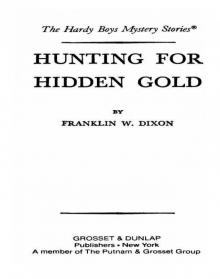 Hunting for Hidden Gold
Hunting for Hidden Gold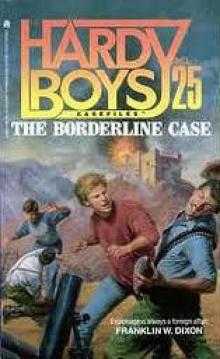 Disaster for Hire
Disaster for Hire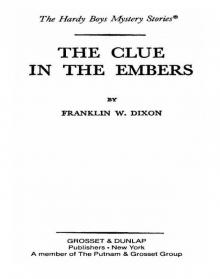 The Clue in the Embers
The Clue in the Embers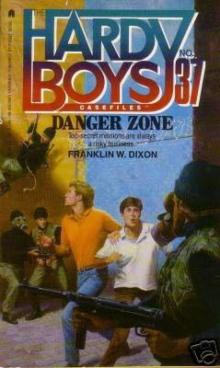 Danger Zone
Danger Zone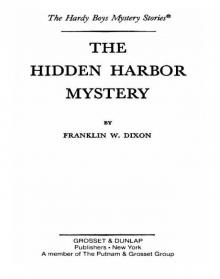 The Hidden Harbor Mystery
The Hidden Harbor Mystery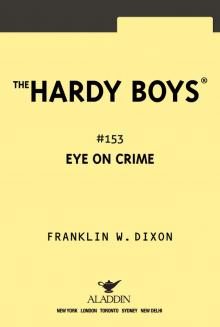 Eye on Crime
Eye on Crime A Game Called Chaos
A Game Called Chaos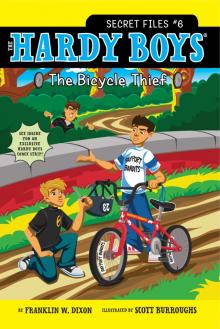 The Bicycle Thief
The Bicycle Thief The Missing Playbook
The Missing Playbook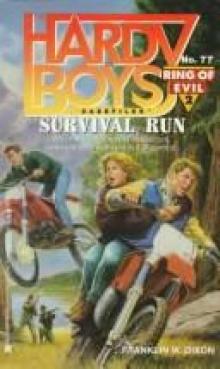 Survival Run
Survival Run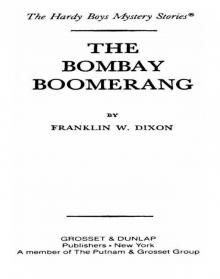 The Bombay Boomerang
The Bombay Boomerang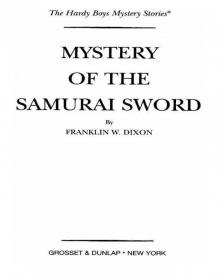 Mystery of the Samurai Sword
Mystery of the Samurai Sword Burned
Burned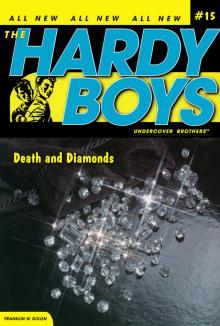 Death and Diamonds
Death and Diamonds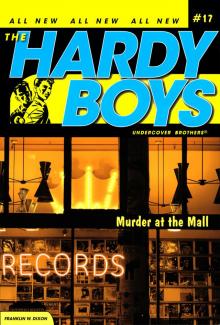 Murder at the Mall
Murder at the Mall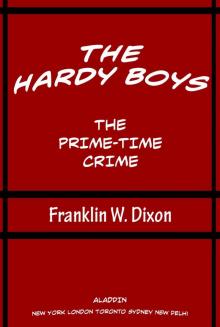 The Prime-Time Crime
The Prime-Time Crime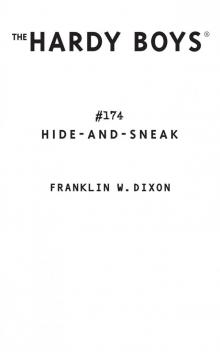 Hide-and-Sneak
Hide-and-Sneak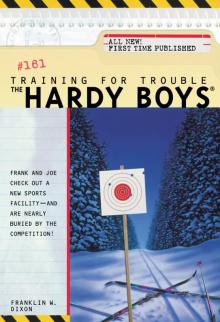 Training for Trouble
Training for Trouble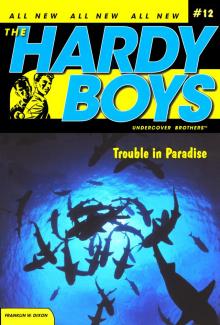 Trouble in Paradise
Trouble in Paradise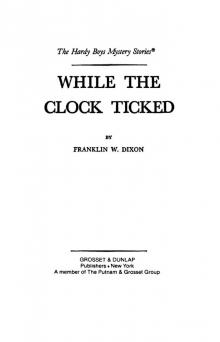 While the Clock Ticked
While the Clock Ticked The Alaskan Adventure
The Alaskan Adventure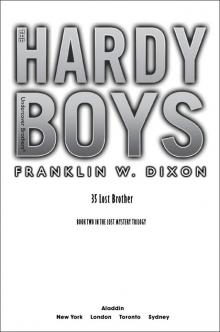 The Lost Brother
The Lost Brother Tunnel of Secrets
Tunnel of Secrets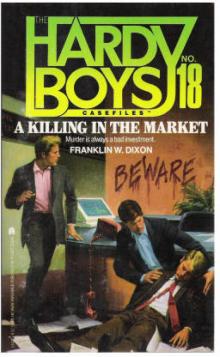 A Killing in the Market
A Killing in the Market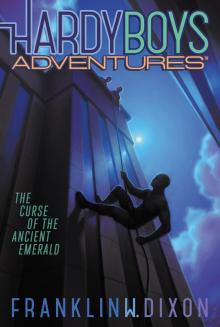 The Curse of the Ancient Emerald
The Curse of the Ancient Emerald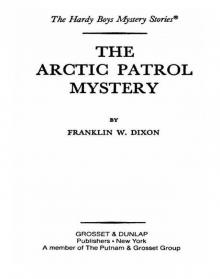 The Arctic Patrol Mystery
The Arctic Patrol Mystery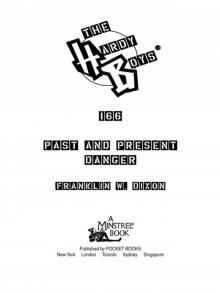 Past and Present Danger
Past and Present Danger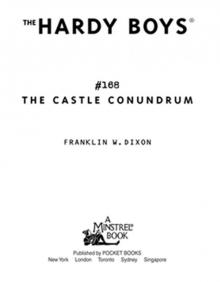 The Castle Conundrum (Hardy Boys)
The Castle Conundrum (Hardy Boys)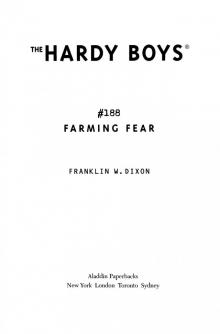 Farming Fear
Farming Fear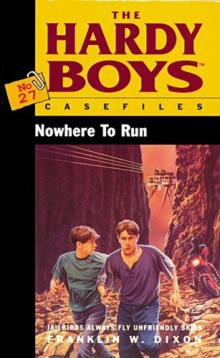 Nowhere to Run
Nowhere to Run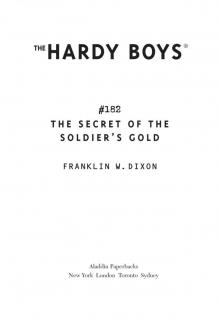 The Secret of the Soldier's Gold
The Secret of the Soldier's Gold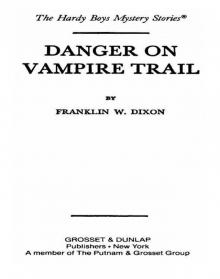 Danger on Vampire Trail
Danger on Vampire Trail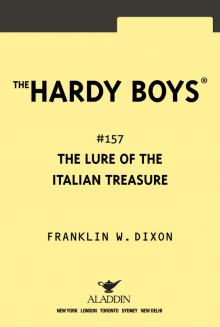 The Lure of the Italian Treasure
The Lure of the Italian Treasure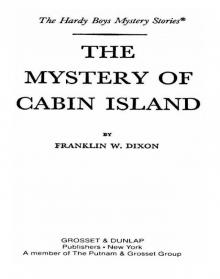 The Mystery of Cabin Island
The Mystery of Cabin Island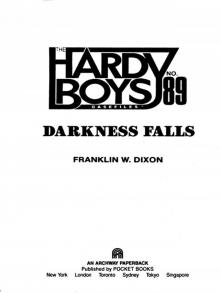 Darkness Falls
Darkness Falls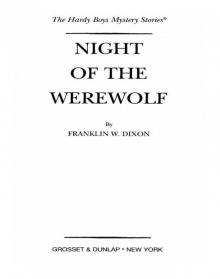 Night of the Werewolf
Night of the Werewolf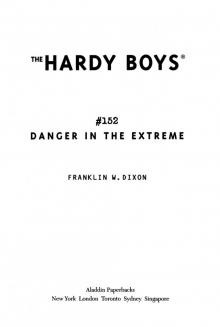 Danger in the Extreme
Danger in the Extreme The Lazarus Plot
The Lazarus Plot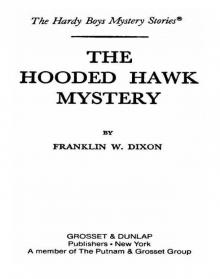 The Hooded Hawk Mystery
The Hooded Hawk Mystery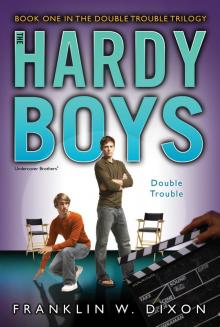 Double Trouble
Double Trouble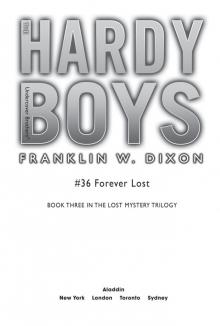 Forever Lost
Forever Lost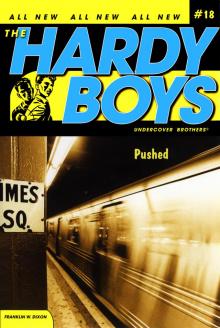 Pushed
Pushed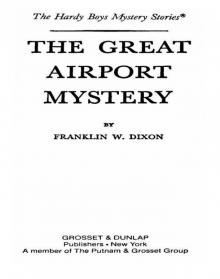 The Great Airport Mystery
The Great Airport Mystery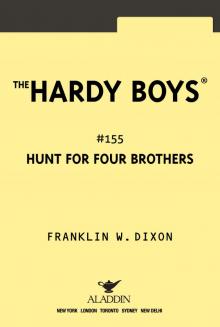 The Hunt for Four Brothers
The Hunt for Four Brothers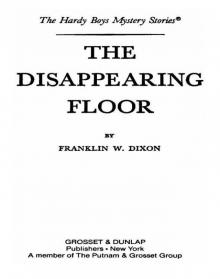 The Disappearing Floor
The Disappearing Floor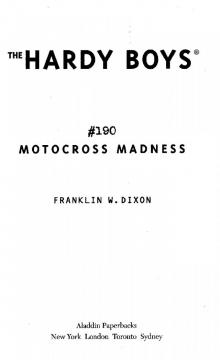 Motocross Madness
Motocross Madness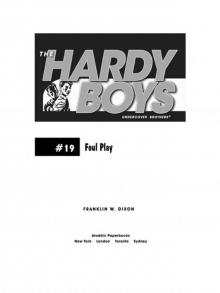 Foul Play
Foul Play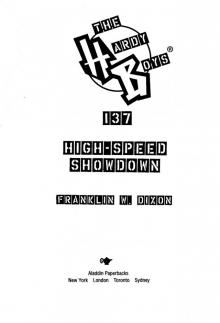 High-Speed Showdown
High-Speed Showdown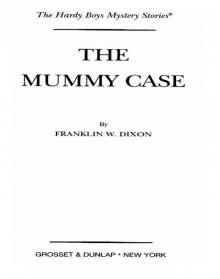 The Mummy Case
The Mummy Case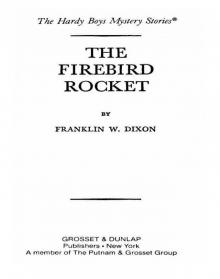 The Firebird Rocket
The Firebird Rocket Trouble in Warp Space
Trouble in Warp Space Ship of Secrets
Ship of Secrets Line of Fire
Line of Fire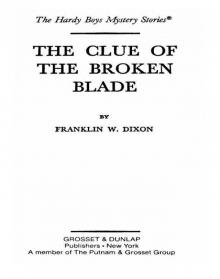 The Clue of the Broken Blade
The Clue of the Broken Blade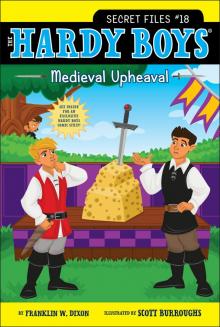 Medieval Upheaval
Medieval Upheaval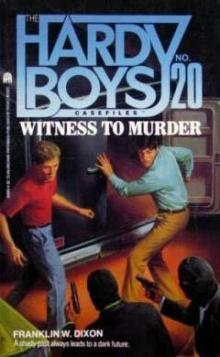 Witness to Murder
Witness to Murder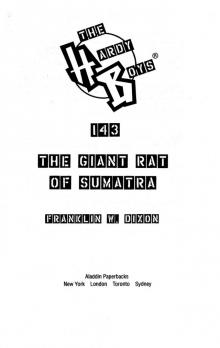 The Giant Rat of Sumatra
The Giant Rat of Sumatra Attack of the Bayport Beast
Attack of the Bayport Beast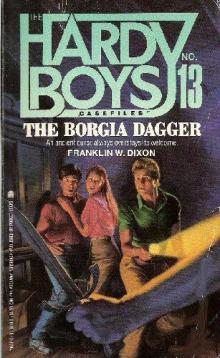 The Borgia Dagger
The Borgia Dagger Scavenger Hunt Heist
Scavenger Hunt Heist No Way Out
No Way Out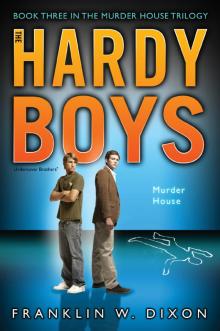 Murder House
Murder House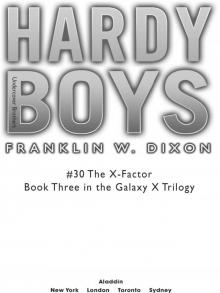 The X-Factor
The X-Factor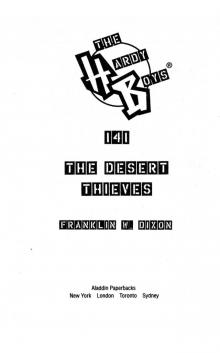 The Desert Thieves
The Desert Thieves Mystery of the Phantom Heist
Mystery of the Phantom Heist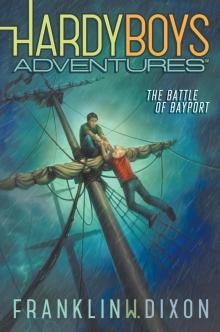 The Battle of Bayport
The Battle of Bayport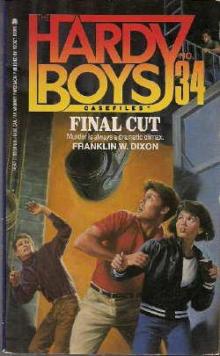 Final Cut
Final Cut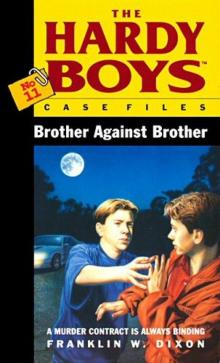 Brother Against Brother
Brother Against Brother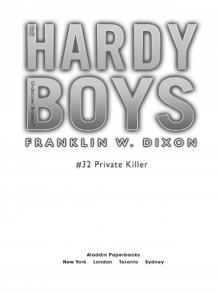 Private Killer
Private Killer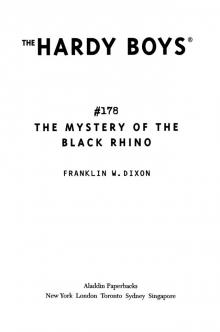 The Mystery of the Black Rhino
The Mystery of the Black Rhino Feeding Frenzy
Feeding Frenzy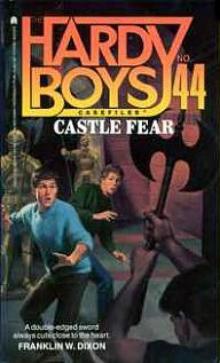 Castle Fear
Castle Fear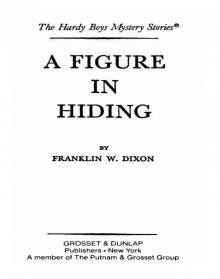 A Figure in Hiding
A Figure in Hiding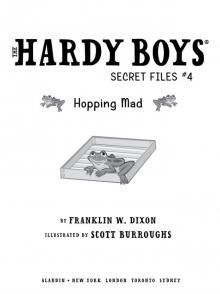 Hopping Mad
Hopping Mad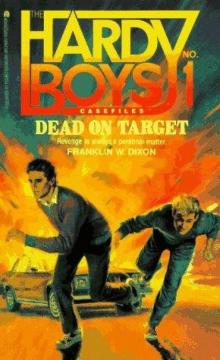 Dead on Target
Dead on Target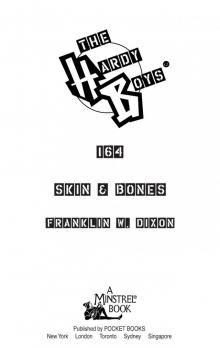 Skin and Bones
Skin and Bones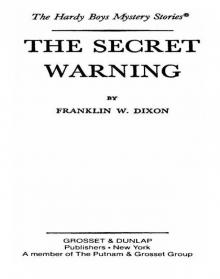 The Secret Warning
The Secret Warning Flesh and Blood
Flesh and Blood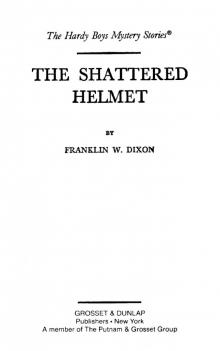 The Shattered Helmet
The Shattered Helmet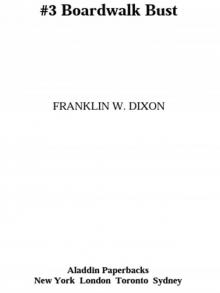 Boardwalk Bust
Boardwalk Bust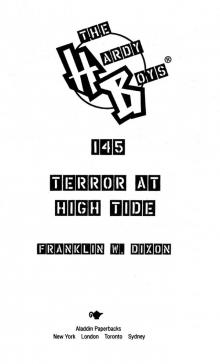 Terror at High Tide
Terror at High Tide In Plane Sight
In Plane Sight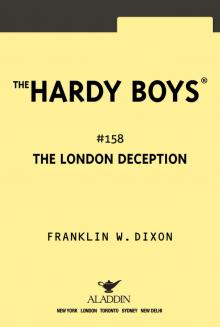 The London Deception
The London Deception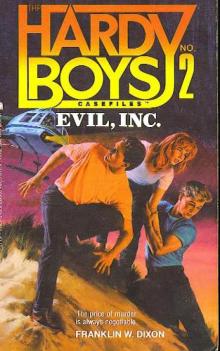 Evil, Inc.
Evil, Inc.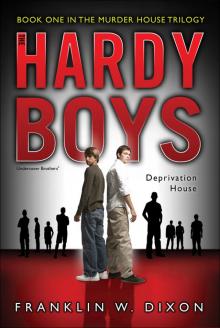 Deprivation House
Deprivation House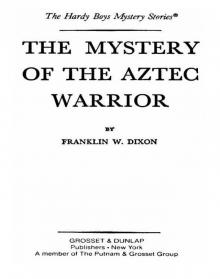 The Mystery of the Aztec Warrior
The Mystery of the Aztec Warrior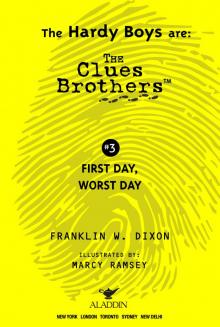 First Day, Worst Day
First Day, Worst Day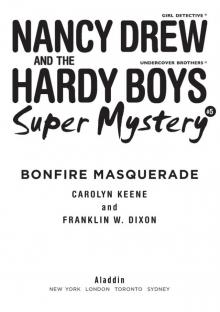 Bonfire Masquerade
Bonfire Masquerade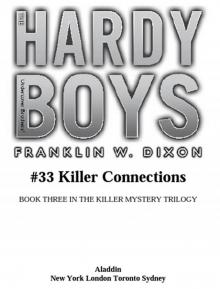 Killer Connections
Killer Connections Strategic Moves
Strategic Moves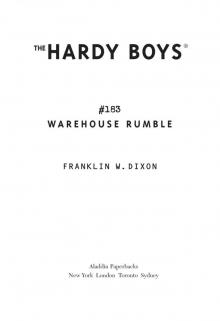 Warehouse Rumble
Warehouse Rumble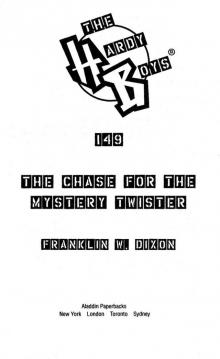 The Chase for the Mystery Twister
The Chase for the Mystery Twister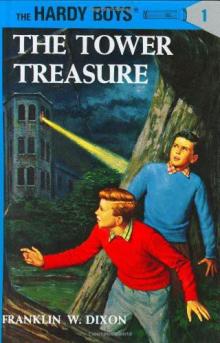 The Tower Treasure thb-1
The Tower Treasure thb-1 The Children of the Lost
The Children of the Lost The Last Laugh
The Last Laugh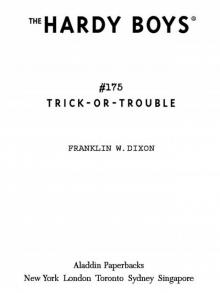 Trick-or-Trouble
Trick-or-Trouble Perfect Getaway
Perfect Getaway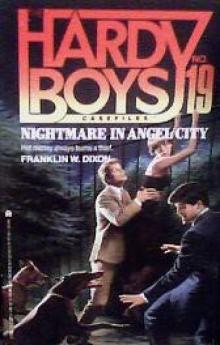 Nightmare in Angel City
Nightmare in Angel City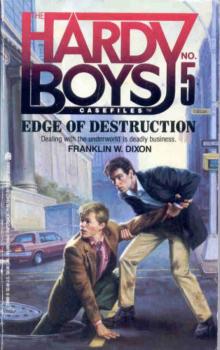 Edge of Destruction
Edge of Destruction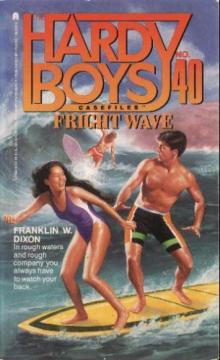 Fright Wave
Fright Wave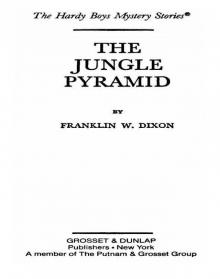 The Jungle Pyramid
The Jungle Pyramid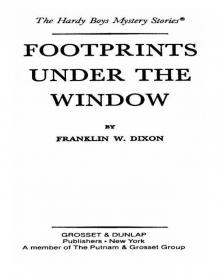 Footprints Under the Window
Footprints Under the Window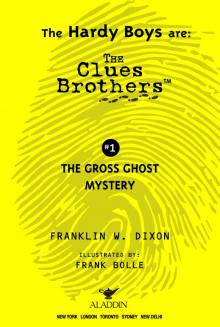 The Gross Ghost Mystery
The Gross Ghost Mystery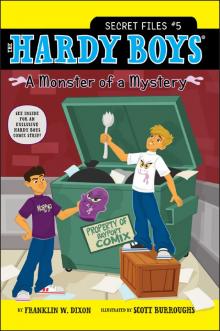 A Monster of a Mystery
A Monster of a Mystery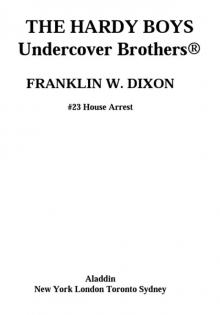 House Arrest
House Arrest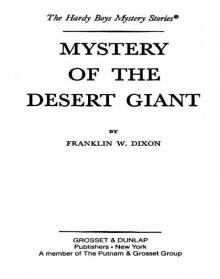 Mystery of the Desert Giant
Mystery of the Desert Giant Talent Show Tricks
Talent Show Tricks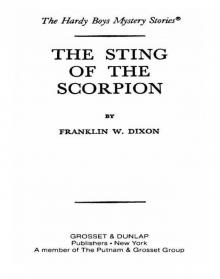 The Sting of the Scorpion
The Sting of the Scorpion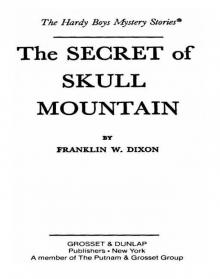 The Secret of Skull Mountain
The Secret of Skull Mountain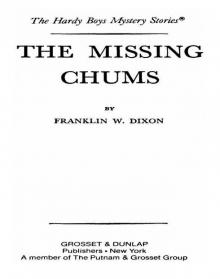 The Missing Chums
The Missing Chums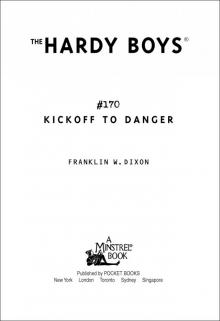 Kickoff to Danger
Kickoff to Danger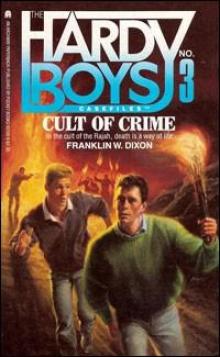 Cult of Crime
Cult of Crime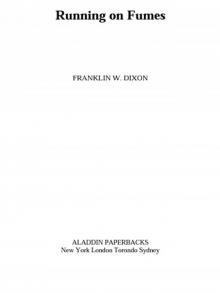 Running on Fumes
Running on Fumes Martial Law
Martial Law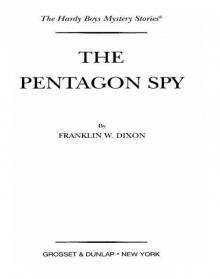 The Pentagon Spy
The Pentagon Spy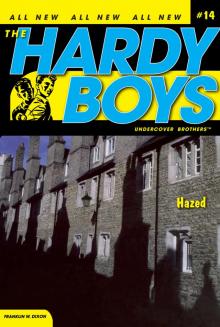 Hazed
Hazed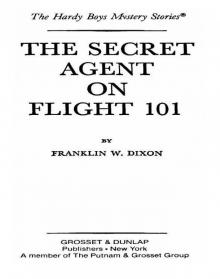 The Secret Agent on Flight 101
The Secret Agent on Flight 101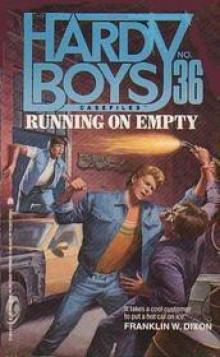 Running on Empty
Running on Empty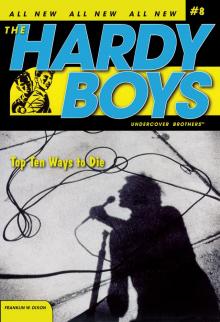 Top Ten Ways to Die
Top Ten Ways to Die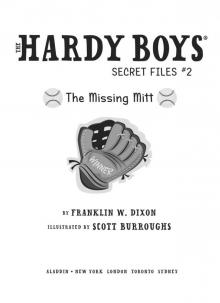 The Missing Mitt
The Missing Mitt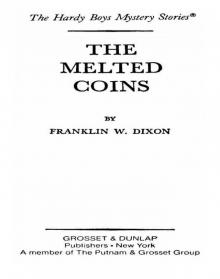 The Melted Coins
The Melted Coins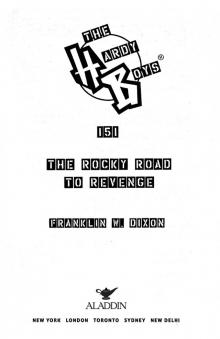 The Rocky Road to Revenge
The Rocky Road to Revenge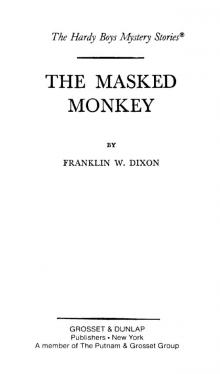 The Masked Monkey
The Masked Monkey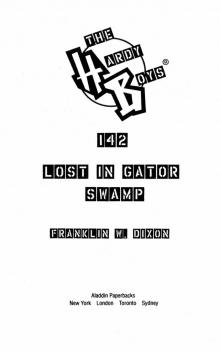 Lost in Gator Swamp
Lost in Gator Swamp Extreme Danger
Extreme Danger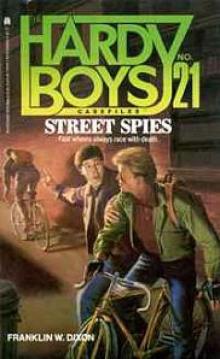 Street Spies
Street Spies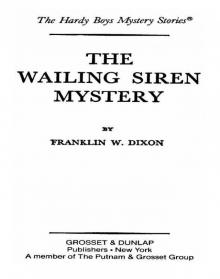 The Wailing Siren Mystery
The Wailing Siren Mystery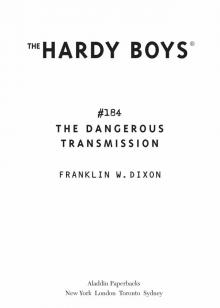 The Dangerous Transmission
The Dangerous Transmission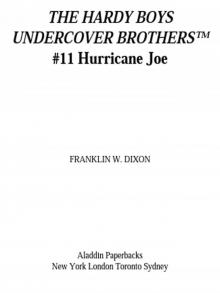 Hurricane Joe
Hurricane Joe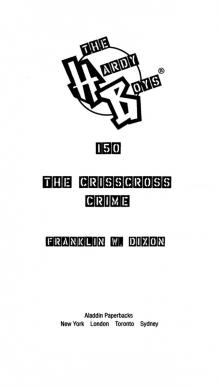 The Crisscross Crime
The Crisscross Crime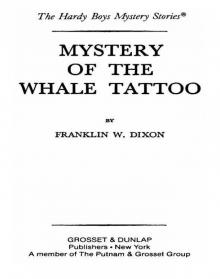 Mystery of the Whale Tattoo
Mystery of the Whale Tattoo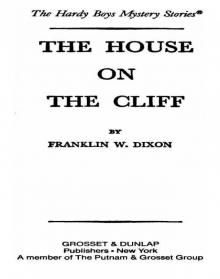 The House on the Cliff
The House on the Cliff Camping Chaos
Camping Chaos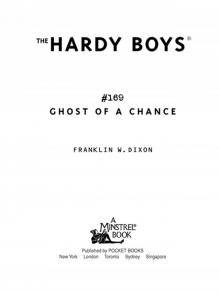 Ghost of a Chance
Ghost of a Chance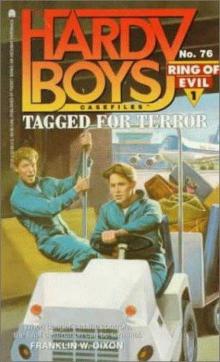 Tagged for Terror
Tagged for Terror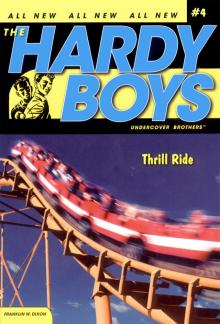 Thrill Ride
Thrill Ride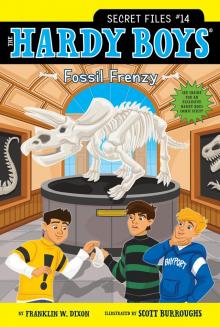 Fossil Frenzy
Fossil Frenzy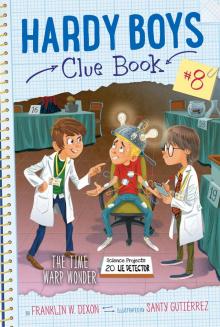 The Time Warp Wonder
The Time Warp Wonder Ghost Stories
Ghost Stories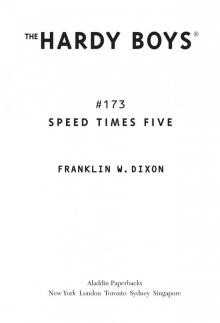 Speed Times Five
Speed Times Five What Happened at Midnight
What Happened at Midnight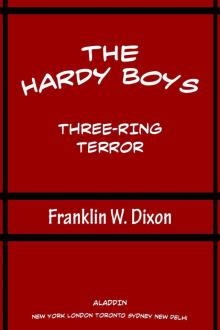 Three-Ring Terror
Three-Ring Terror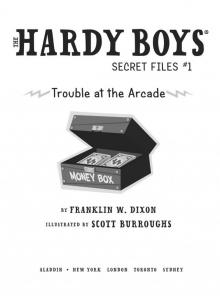 Trouble at the Arcade
Trouble at the Arcade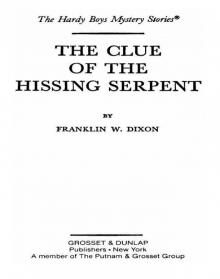 The Clue of the Hissing Serpent
The Clue of the Hissing Serpent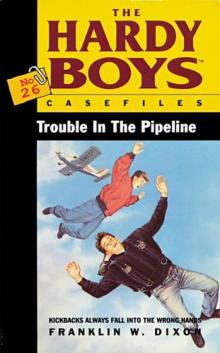 Trouble in the Pipeline
Trouble in the Pipeline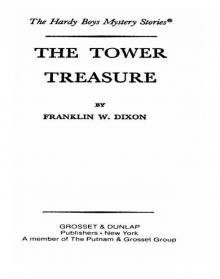 The Tower Treasure
The Tower Treasure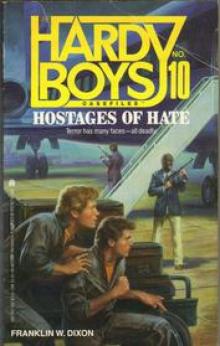 Hostages of Hate
Hostages of Hate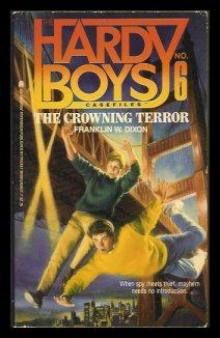 The Crowning Terror
The Crowning Terror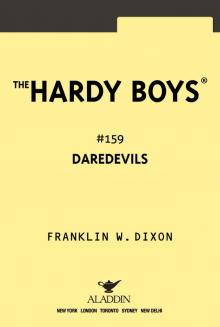 Daredevils
Daredevils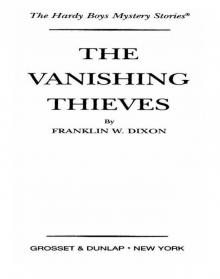 The Vanishing Thieves
The Vanishing Thieves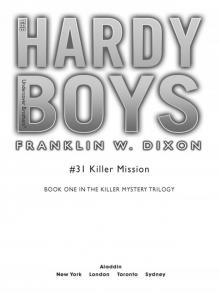 Killer Mission
Killer Mission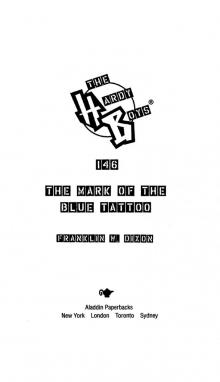 The Mark of the Blue Tattoo
The Mark of the Blue Tattoo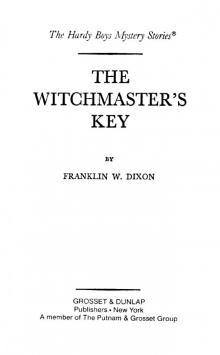 The Witchmaster's Key
The Witchmaster's Key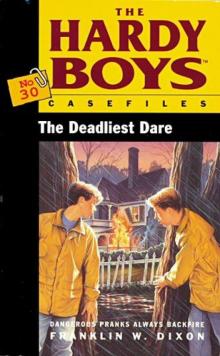 The Deadliest Dare
The Deadliest Dare Peril at Granite Peak
Peril at Granite Peak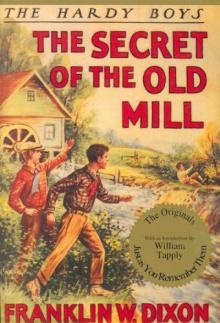 The Secret Of The Old Mill thb-3
The Secret Of The Old Mill thb-3 Rocky Road
Rocky Road The Demolition Mission
The Demolition Mission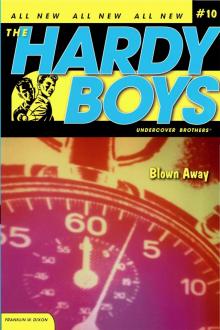 Blown Away
Blown Away Passport to Danger
Passport to Danger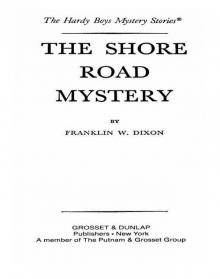 The Shore Road Mystery
The Shore Road Mystery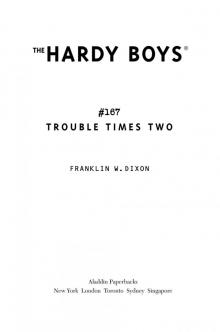 Trouble Times Two
Trouble Times Two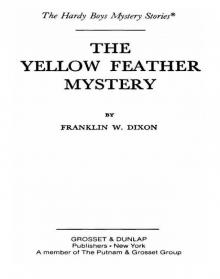 The Yellow Feather Mystery
The Yellow Feather Mystery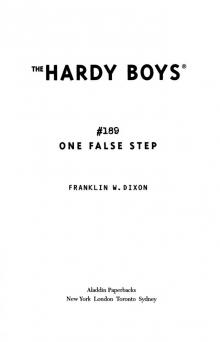 One False Step
One False Step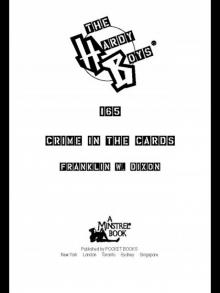 Crime in the Cards
Crime in the Cards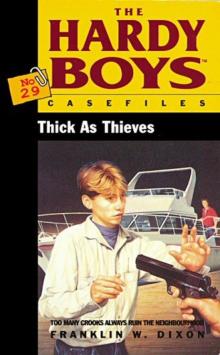 Thick as Thieves
Thick as Thieves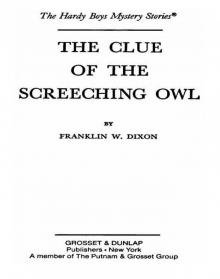 The Clue of the Screeching Owl
The Clue of the Screeching Owl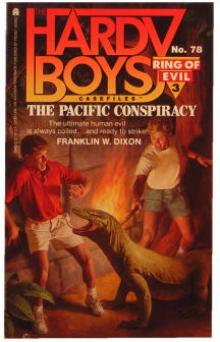 The Pacific Conspiracy
The Pacific Conspiracy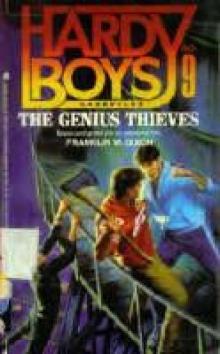 The Genius Thieves
The Genius Thieves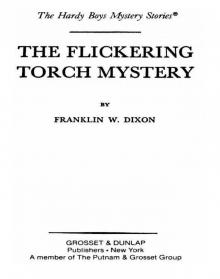 The Flickering Torch Mystery
The Flickering Torch Mystery Into Thin Air
Into Thin Air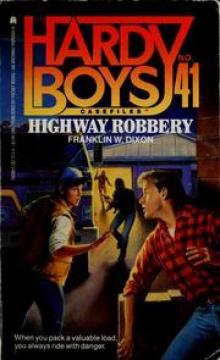 Highway Robbery
Highway Robbery Deadfall
Deadfall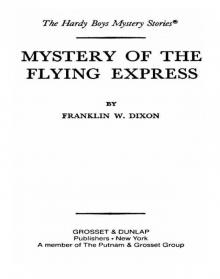 Mystery of the Flying Express
Mystery of the Flying Express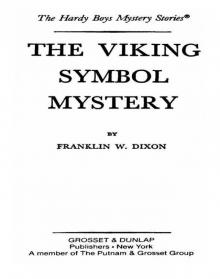 The Viking Symbol Mystery
The Viking Symbol Mystery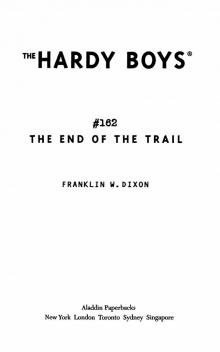 The End of the Trail
The End of the Trail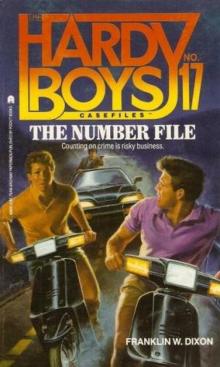 The Number File
The Number File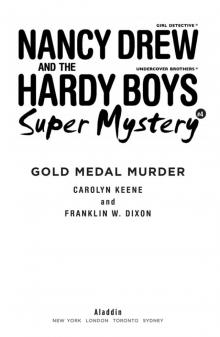 Gold Medal Murder
Gold Medal Murder Bound for Danger
Bound for Danger Collision Course
Collision Course The Madman of Black Bear Mountain
The Madman of Black Bear Mountain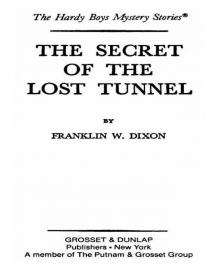 The Secret of the Lost Tunnel
The Secret of the Lost Tunnel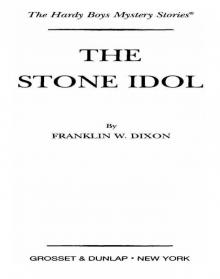 The Stone Idol
The Stone Idol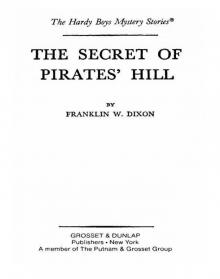 The Secret of Pirates' Hill
The Secret of Pirates' Hill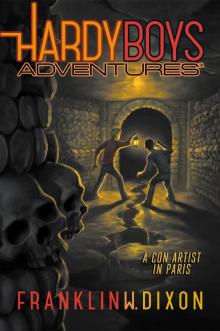 A Con Artist in Paris
A Con Artist in Paris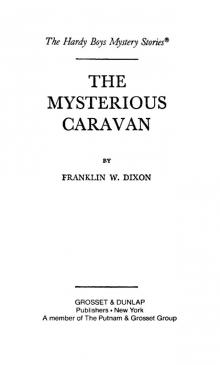 The Mysterious Caravan
The Mysterious Caravan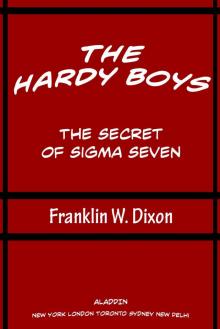 The Secret of Sigma Seven
The Secret of Sigma Seven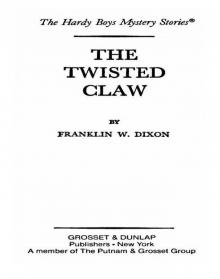 The Twisted Claw
The Twisted Claw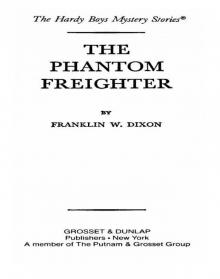 The Phantom Freighter
The Phantom Freighter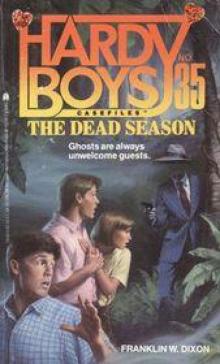 The Dead Season
The Dead Season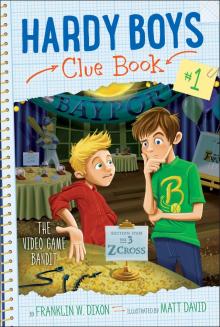 The Video Game Bandit
The Video Game Bandit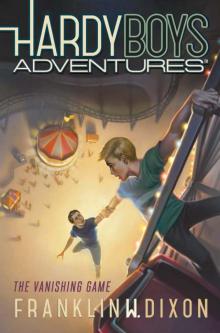 The Vanishing Game
The Vanishing Game Typhoon Island
Typhoon Island